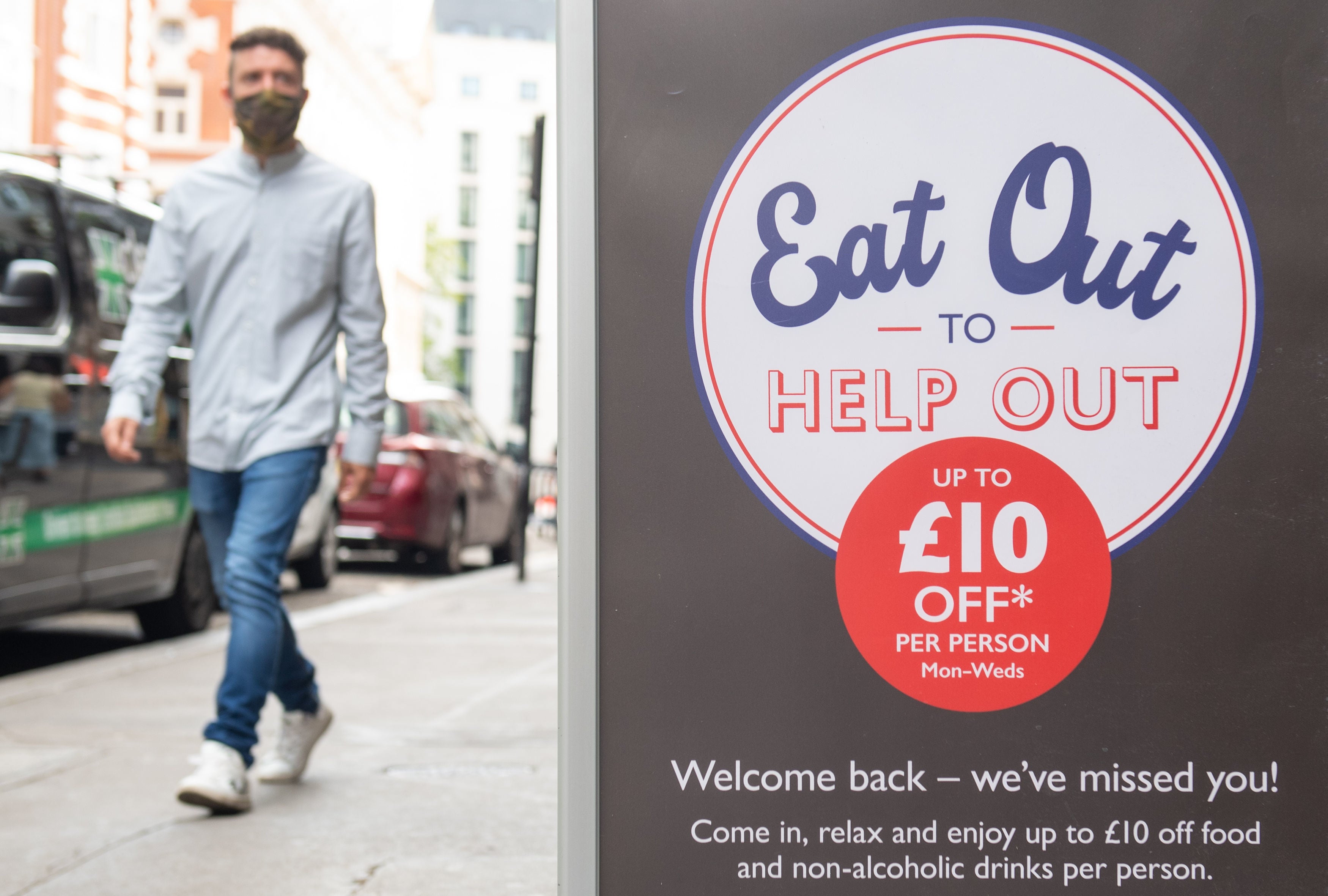‘Eat Out to Help Out’ scheme accelerated coronavirus second wave across UK, study says
The researcher calls the government initiative ‘a false economy’

Your support helps us to tell the story
From reproductive rights to climate change to Big Tech, The Independent is on the ground when the story is developing. Whether it's investigating the financials of Elon Musk's pro-Trump PAC or producing our latest documentary, 'The A Word', which shines a light on the American women fighting for reproductive rights, we know how important it is to parse out the facts from the messaging.
At such a critical moment in US history, we need reporters on the ground. Your donation allows us to keep sending journalists to speak to both sides of the story.
The Independent is trusted by Americans across the entire political spectrum. And unlike many other quality news outlets, we choose not to lock Americans out of our reporting and analysis with paywalls. We believe quality journalism should be available to everyone, paid for by those who can afford it.
Your support makes all the difference.The UK government’s Eat Out to Help Out scheme caused a "significant" increase in new coronavirus cases, a new study has found, and contributed to the “acceleration” of the pandemic.
The University of Warwick research suggests that the government scheme may be responsible for eight to 17 per cent of newly detected Covid-19 clusters in August and early September.
The programme, spearheaded by the chancellor, Rishi Sunak, subsidised restaurants and pubs to offer discounted meals on Monday, Tuesday and Wednesday in August.
The scheme, which gave diners up to 50 per cent off their bill, was intended to help the economy after the lockdown which saw hospitality venues shuttered.
The associate professor behind the study, Dr Thiemo Fetzer, said the Eat Out to Help Out initiative “shortened the time between the UK’s first and second coronavirus waves”.
The economist told The Independent: “Many restaurants enjoyed a good August, but they won’t enjoy a good autumn because as infections rise, people are less likely to eat out and obviously any lockdown will make things even worse for the restaurant sector.
“The acceleration of the pandemic, that requires more aggressive measures like a lockdown, is the result of policy failures — including not having an effective test and trace system in place that would allow businesses to safely operate.
“It’s a consequence of very shortsighted policies that generate nice headlines, as the Eat Out to Help Out scheme did over the summer.”
Dr Fetzer underlined: "Ultimately, by accelerating the pandemic, it was a false economy.”
The preprint, which has not yet been published as a paper, shows that areas with higher uptake of the subsidised restaurant scheme saw infections “steadily” increase about one week after the initiative began, and decline after it had ended.
However, Paul Hunter, Professor in Medicine, UEA, expressed some reservations about the study’s methodology. He warned that “any estimate of the size of the impact of eat out to help out on case numbers should be treated with some caution”.
The study follows Boris Johnson admitting earlier this month that the government initiative may have exacerbated the rise in Covid-19 cases seen across the UK in recent months.
“It was very important to keep those jobs going,” he told the BBC. “Insofar as that scheme may have helped to spread the virus, then obviously we need to counteract that and we need to counteract that with the discipline and the measures that we're proposing.”
However, Mr Sunak said soon after that did not regret launching the programme.
“No, no, no, no, definitely not,” he told The Sun. “We had an industry that I care deeply about because of employment. It’s over two million people.”
A Treasury spokesperson said: “We do not recognise these figures — which, as the study itself admits, are ‘back-of-the-envelope’ calculations.
“Many other European counterparts have experienced an uptick in cases — irrespective of whether similar measures for the hospitality industry have been introduced.
“We’re continuing to work closely with businesses to help them be Covid-secure.”
The state subsidised around 100m meals during August.





Join our commenting forum
Join thought-provoking conversations, follow other Independent readers and see their replies
Comments